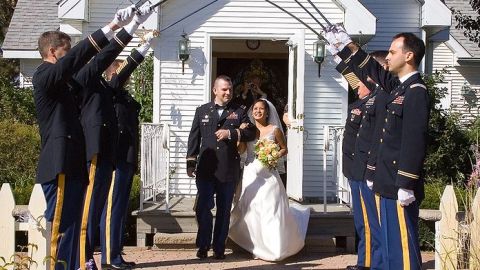“We Marry the People We Fight”

Ariel Levy’s review in The New Yorker of Elizabeth Gilbert’s Committed repeats a common truism about marriage: That marriage ties originally were about lowering everyone’s personal threat level. In ancient times, Levy writes, “A web of families connected through marriage produced a clan of people who were less likely to kill you than everybody else was.”
Yorky say what? A web of families connected through marriage well describes the crowned heads of Europe in 1914 (the Russian Czar was a first cousin on his mother’s side to the German Kaiser, who was first cousin on his mother’s side to the King of England, who was first cousin on his father’s side to the Kaiser (and also first cousin to the Czar’s wife, via a different aunt’s marriage). They called each other Nicky, Willy and Georgie right up to the moment when they went to war with each other.
That cousins and cousins-by-marriage shed each other’s blood is typical of extended-family relations throughout human history, at least since the Trojan War, the blood-feud at the dawn of Western civilization. From anthropological records around the world (including many Thanksgiving tables), you could just as easily make a case that marriage ties make people more likely to fight. In tribes he’d studied in East Africa, the anthropologist Max Gluckman said in Custom and Conflict in Africa, there was a proverb: “They are our enemies. We marry them.’’ The Mae Enga in New Guinea told Mervyn Meggitt much the same: “We marry the people we fight.’’
This led the anthropologist Lawrence Keeley to speculate that war, commerce and intermarriage might make more sense if they were seen as different cycles of a single relationship among people–one that is at once advantageous, guarded, tense and close. The origins of marriage may be about more than finding people to watch your back.





